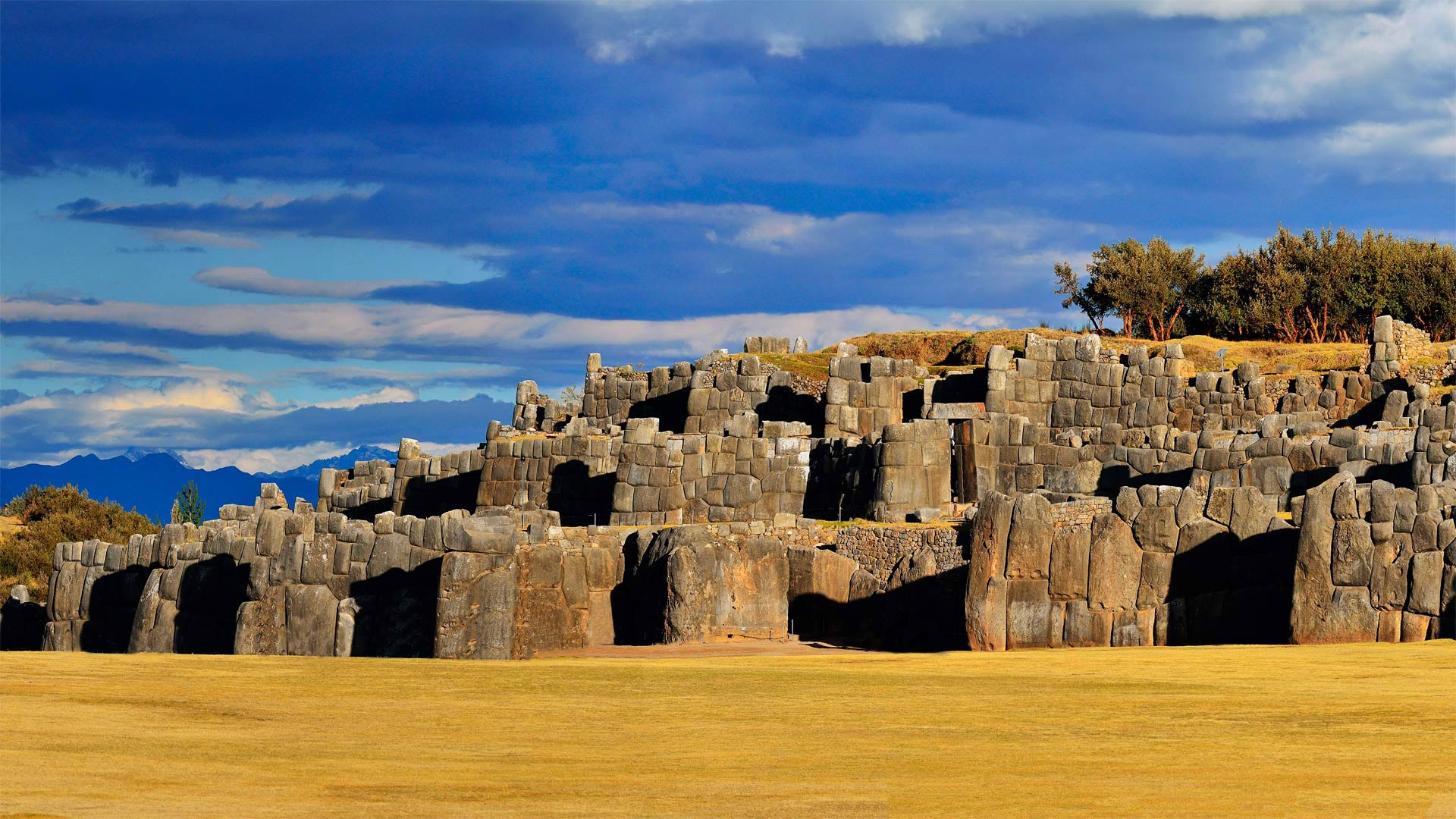库斯科附近萨克塞华曼的印加要塞,秘鲁 Inca fortress of Sacsayhuamán near Cusco, Peru (© Susanne Kremer/eStock Photo)

库斯科附近萨克塞华曼的印加要塞,秘鲁 Inca fortress of Sacsayhuamán near Cusco, Peru (© Susanne Kremer/eStock Photo)
The (Inca) empire strikes back
It's the 1530s. Spanish conquistadors are cementing their hold over the lands of the Incan Empire, including the massive 12th-century stone fortress in today's image: Sacsayhuamán, in the old Inca capital of Cusco. The Spanish hold prisoner a man named Manco Inca, the puppet leader they've installed over the Incans. But one day in the spring of 1536, he escapes.
He returns on May 6, accompanied by legions of Inca warriors. The Inca retake much of Cusco, including Sacsayhuamán, which they make their main base, forcing the Spanish to take refuge in buildings near the main plaza. In the end, the Incan effort fails: After a few months, the Spanish retake Sacsayhuamán and then manage to cut off the Incans' supplies, forcing their surrender and finalizing Spain's control over Peru. The Spaniards will partly dismantle Sacsayhuamán and use its smaller blocks to build colonial Cusco. But even today, the outer walls of impossibly large interlocking stones still overlook the modern-day city, a symbol of the mysterious empire that once ruled here.
评论已关闭